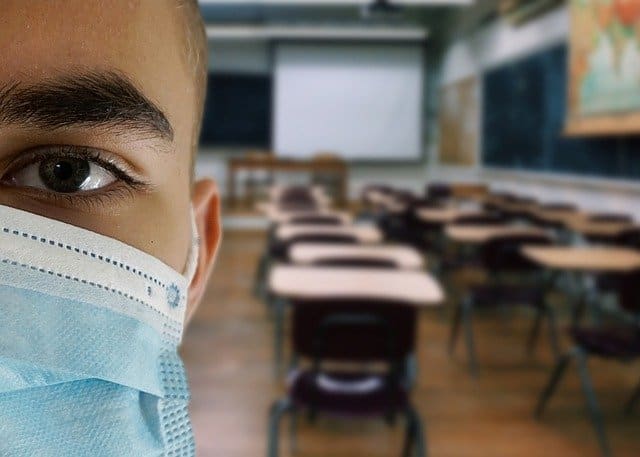
Secondary students will have staggered returns to school after the Christmas break as covid testing takes place.
Secondary-age pupils are being prioritised for testing in response to the recent high rates of coronavirus (COVID-19) infection.
Primary school pupils will return as normal in January and the measures do not apply to early years providers.
All schools with secondary-age pupils, including special schools and alternative provision, will be offered the opportunity to test students, from the week of January 4.
In these schools with secondary-age pupils, vulnerable children, the children of critical workers and pupils in exam year groups (primarily years 11 and 13) are expected to return to school on the advertised first day of term and should be prioritised for testing.
All other pupils must be provided with remote education until January 11 when they will resume face-to-face attendance. Pupils will not need to have had a test in order to return to school on January 11.
The government says: “Our approach is intended to minimise the impacts of coronavirus (COVID-19) in education beyond the start of term and to support all pupils attending education. Being in education is vital for children’s development and wellbeing.
“Time spent out of settings is detrimental to children’s learning, development and wellbeing, particularly for disadvantaged children. That is why, beyond this exceptional period, it continues to be our aim that all pupils, in all year groups, attend school full-time.”
Early years
Parents and carers can continue to access early years settings as normal from January 2021.
Primary schools
Primary schools should resume on-site provision as planned from their advertised first day of term and allow all pupils to attend as they have since the start of the school year.
Schools with secondary-age pupils
Schools with secondary-age pupils are encouraged to prepare for a phased start back to planned on-site provision in the first week of term to allow for these pupils to be tested ahead of normal schooling resuming.
This should involve:
- full-time on-site provision from the first day of term for all vulnerable children, the children of critical workers and pupils in exam year groups (primarily years 11 and 13)
- as many secondary-age pupils and staff as possible being offered 2 lateral flow device tests, starting in the week commencing 4 January, prioritising staff, vulnerable children, the children of critical workers and pupils in years 11 and 13
- remote education being provided for all other pupils when they are at home, and in line with local tier restrictions
- all pupils back in school for face-to-face education on 11 January
Vulnerable children and young people include those who:
- are assessed as being in need under section 17 of the Children Act 1989, including children and young people who have a child in need plan, a child protection plan or who are a looked-after child
- have an education, health and care (EHC) plan
- have been identified as otherwise vulnerable by educational providers or local authorities (including children’s social care services), and who could therefore benefit from continued full-time attendance, this might include:
- children and young people on the edge of receiving support from children’s social care services or in the process of being referred to children’s services
- adopted children or children on a special guardianship order
- those at risk of becoming NEET (‘not in employment, education or training’)
- those living in temporary accommodation
- those who are young carers
- those who may have difficulty engaging with remote education at home (for example, due to a lack of devices or quiet space to study)
- care leavers
- other children and young people at the provider and local authority’s discretion including pupils who need to attend to receive support or manage risks to their mental health

